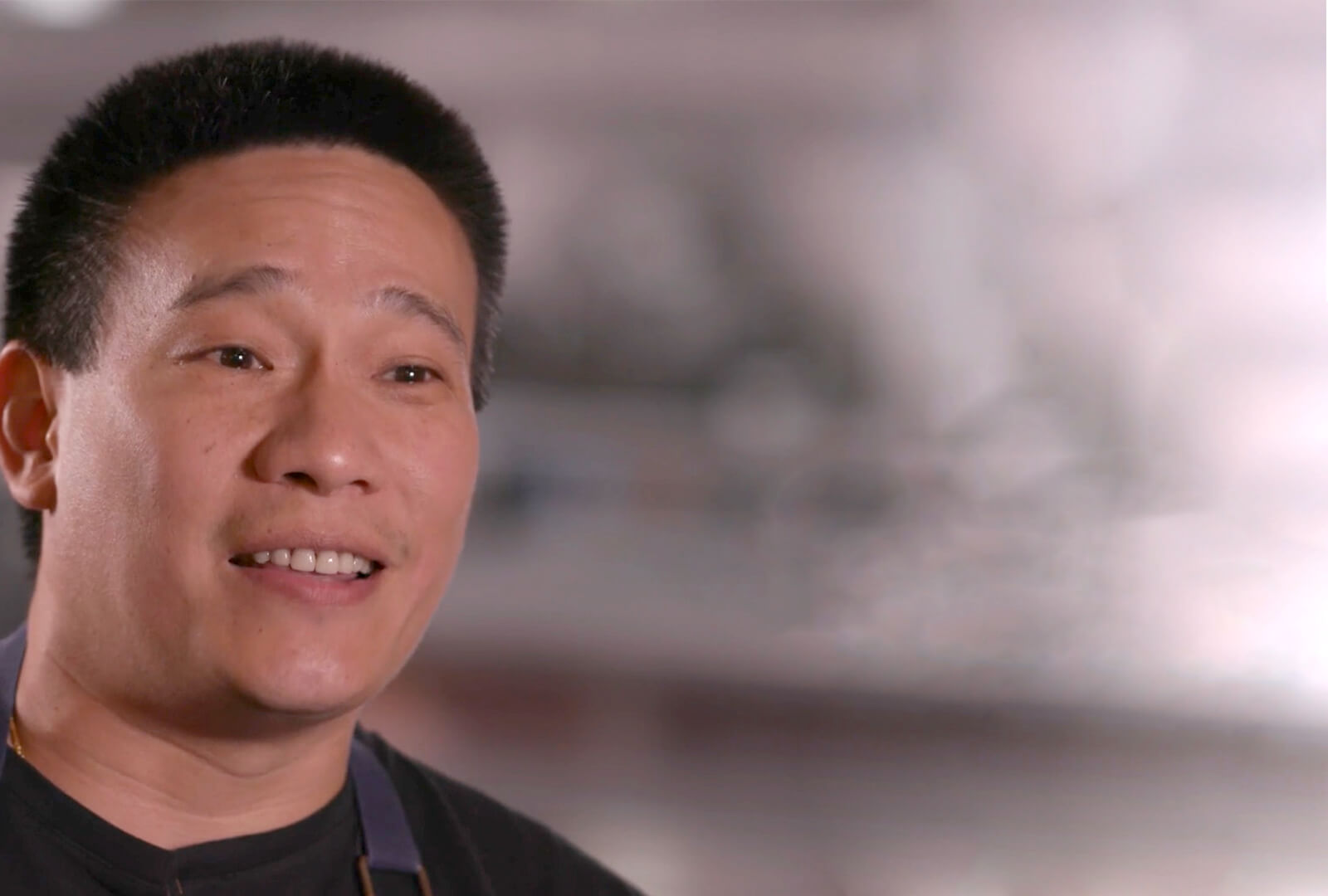Chef Chris Cheung hates repetition, so he makes it a point to keep trying new things, including one very ambitious endeavor: launching successful eating establishments.
“I’ve opened my share of restaurants before,” he says, downplaying the significance of the accomplishment and the fact that he took time out to speak about Cooking & Culture for Hormel Foods on the inaugural day of his second East Wind Snack Shop. Admittedly, he has a soft spot for the company.
“Hormel Foods can do no wrong because of the SPAM® brand,” Chris says. “It’s the thing for Asian people in general. It’s in every cupboard in the United States and China.”
His new restaurant, a sister to the first spot in Brooklyn, is on Broadway in New York’s SoHo neighborhood, a longtime favorite of many of the city’s artists, hipsters and trendsetters.
“It’s a dumpling place,” he says, proving yet again that Chris is nothing if not a master of the understatement. Though it’s casual with unpretentious fare, the concept nevertheless gets rave reviews. “This is a place you rarely find, and when you do it’s heaven,” one diner wrote on Yelp.
I love & appreciate free time, but I don’t seem to get a lot of it.
Chef Chris Cheung
Embracing Chinese Culture
All the while, his Chinese heritage was nudging him. “I grew up in the heart of Chinatown. I was a full-out Chinatown kid,” he says. “I’m talking ducks in the windows. That sort of thing. I lived on that for many years.” When his family moved to Brooklyn, it gave Chris a “more American view.” His neighborhood had some cultural diversity. Irish and Italian residents, for example.
As he was becoming a well-regarded chef in his own right, Chris journeyed to Shanghai in search of an old love: Chinese cooking. He prepared banquets in farming and fishing towns, employing farm-to-table and sea-to-table cooking techniques. It was rustic and “amazing,” he says. “Nothing saw the inside of a refrigerator because there was none. Fish were live in a barrel and I had to process my own chicken.”
Evermore inspired to bring his ancestors’ cuisine to America, Chris returned to New York City to work beside Chef Lam, a Hong Kong dim sum master. As word of his knowledge and expertise spread, he landed roles on Food Network’s “No Reservations,” “Chopped” and other programs. He also earned a well-deserved reputation as one of America’s best purveyors of Chinese cooking.
Keeping It Fresh
These days, it’s all about perfecting recipes for his New York and Nashville restaurants, and the seemingly endless cycle of training, paperwork and marketing. Finding time to participate in Cooking & Culture for Hormel Foods is yet another way of “keeping it fresh” for this busy chef.
No stranger to the company, Chris is a fan of the Original variety of SPAM® and even used it in a fried rice dish in one of his restaurants. As fond as he is of fresh, in-season food, he is a champion of canned products and believes “we have to celebrate food in all of its forms.”
“There are great things in cans,” he says. “It goes back to what the Chinese did to keep everyone alive. It’s the beauty and art of preserving food. In the process of preserving, you change the flavor, and then people in that culture can’t live without the taste.”
And Chris is all about bringing good taste to everything he touches.
“I grew up with Chinese food being looked on as cheap and greasy, and now it’s seen as a great cuisine. I’m proud to have played a part in that. I’m still in the game, so there’s more coming,” he says.
